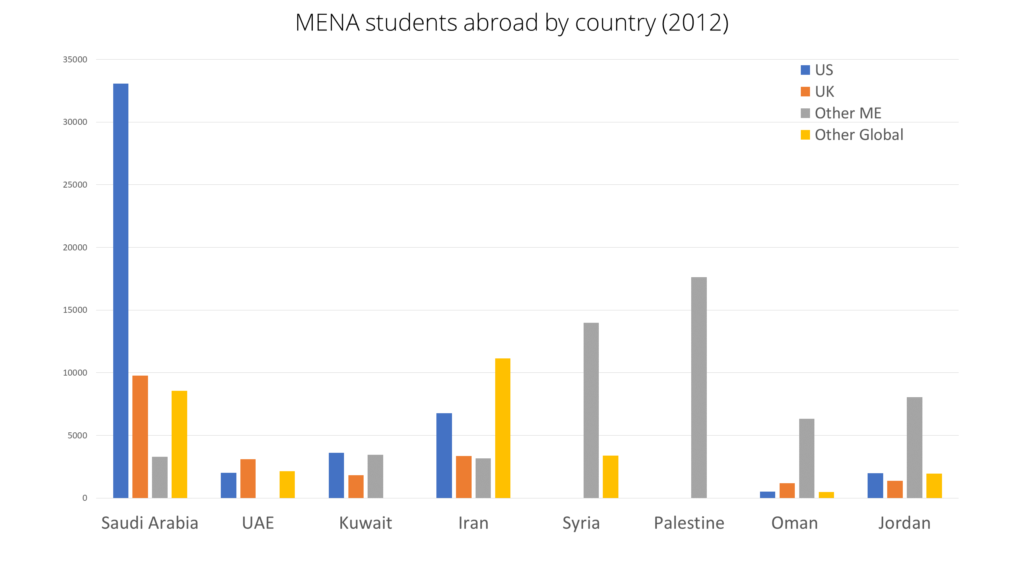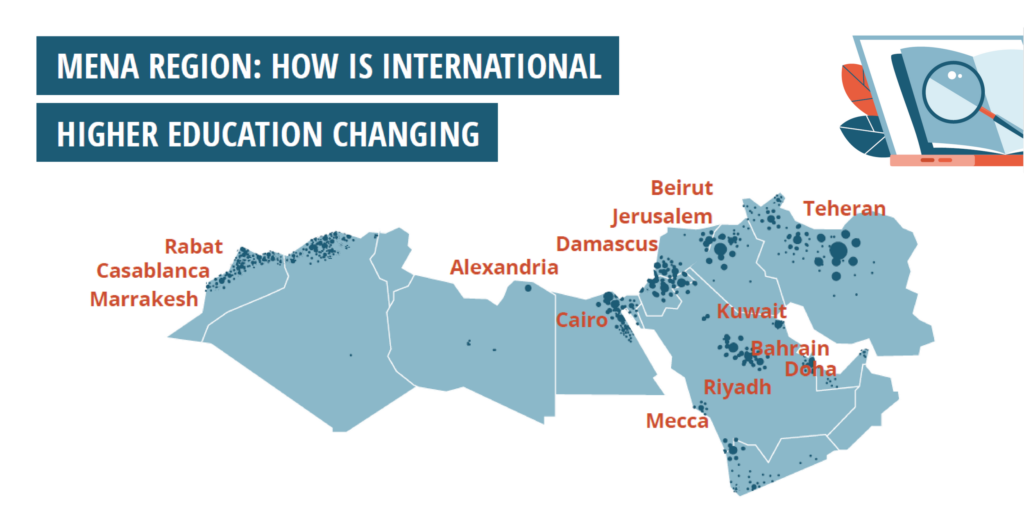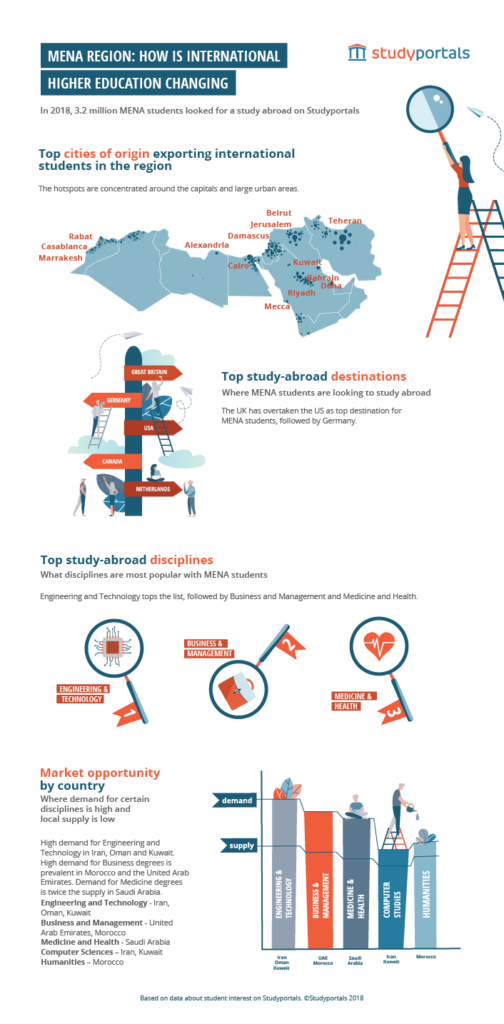Zooming in on the MENA region: How international higher education is changing
The interplay of student mobility and the political moods has never been more important for university professionals to understand where recruitment opportunities lie. War-torn regions such as the Middle East and North Africa are frequently at the center of events which invariably influence the world of higher education.
Earlier this August, Saudi Arabia urged about 16,000 Saudi students in Canada to leave the country. The order happened amid an escalating dispute between the two countries over human rights, hurting both their diplomatic and economic ties.
Statement | The KSA announces the freezing of all new trade and investment transactions between the KSA and Canada. The KSA reserves its right to take further action.
— Foreign Ministry 🇸🇦 (@KSAmofaEN) August 5, 2018
Trump’s Travel Ban led to similar consequences, especially affecting students coming from Iran, Syria, and Yemen. The visa restrictions provoked negative perceptions among students who were already studying or considering to study in the US.
Those are stark examples of just how susceptible the international student community can be to a shifting political context. Interestingly, in the aftermath of such events, MENA students’ hopes and ambitions to find refuge and education abroad have grown even stronger.
In this article, Studyportals zooms in on the MENA region and tries to find the answers to what students from the area are looking for today – what and where they want to study.
MENA region by the numbers
The MENA region consists of 16 countries: Morocco, Algeria, Tunisia, Libya, Egypt, Israel, Jordan, Lebanon, Syria, Iraq, Iran, Kuwait, Bahrain, Qatar, United Arab Emirates, Saudi Arabia, Oman, and Yemen.
With a population of 400 million, 70% of which is under 30, there is an upcoming generation of nearly 140 million looking for education, and many of them will look abroad.
Saudi Arabia is by far the biggest exporter of overseas students from the MENA region, offering extensive scholarship aid, and Canada is among the top three destinations where Saudi students prefer to study. In 2016, 5,979 Saudis studied in Canada, and in 2015 – 53,637 in the United States, and 8,469 in the UK, according to UNESCO data. As a comparison, in 2016, the United Arab Emirates, who ranks second in term of the number of internationally-mobile students, sent a little over 3,000 students to each – the US and Canada.
Using the same data source, it can be estimated that about 30% or internationally-mobile MENA students stay in the region.

We were curious how would the numbers look today? Studyportals’ Levent Gaşgil used data from Studyportals to lend an insight into student interest. He presented his findings during a live webinar, which he co-hosted together with the Global Engagement Manager of Koç University in Istanbul, Melissa Abache. Here are some of the major outcomes:
In 2018, 3.2 million MENA students explored their international study options on Studyportals. The majority of them came from the big urban areas like Tehran, Cairo, Damascus and Riyadh.
Students from the region were predominantly interested in studying in the UK. Their second and third choices were Germany and the United States. A year ago, the US was their preferred study destination, yet, given the political climate, it has now dropped to number three.
The top three disciplines among MENA students were Engineering and Technology, Business and Management, and Medicine and Health. Students from Algeria, Libya, and Egypt showed most interest in Engineering and Technology, while those from Morocco, Qatar, and Yemen showed a preference for Business and Management. Medicine and Health was most popular with students from Syria and Saudi Arabia.
We also compared the supply and demand for certain disciplines for each of the countries in the region, and outlined below a few fields that present a strong market opportunity:
An emerging market
The Middle East and North Africa region is steadily growing its share of students on the global map of international higher education. Watch Levent Gaşgil lend more of his insights during a 60-minute webinar, where he also gives the floor to the Global Engagement Manager of Koç University in Istanbul, Melissa Abache, who shares best practices for recruiting international students from the region.
For more updates, follow us!






